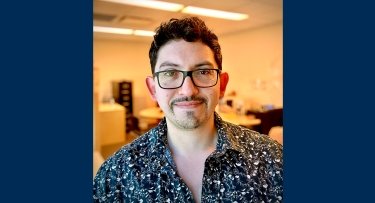Mercy Assistant Professor Co-Authors Study on Inflammation that Breaks New Ground

Mercy Assistant Professor and vascular cell biologist Patricio Mujica-Urzúa has published a study exploring the signaling mechanism for inactivating inflammation-induced hyperpermeability. The article, “Endothelial mechanisms for inactivation of inflammation-induced hyperpermeability,” appeared in The American Journal of Physiology, Heart and Circulatory Physiology.
The study, a collaboration among co-authors from research centers in the U.S., Chile, and Germany, aims to explain key principles of inflammation. As the body’s response to injury or infection for healing and repair, inflammation activates the blood vessels to increase their permeability to better allow the repair of damaged tissue. But if the process is unabated it can lead to chronic inflammation, which is associated with conditions like cancer, cardiovascular disease and organ failure.
Through this research, Mujica-Urzúa and colleagues have advanced new therapies in the treatment of inflammation in surgical settings. “For example, reconstructive surgery requires the reconnection of a great many blood vessels, and once blood flow is restored, it can cause massive inflammation,” he said. “We hope our study will lead to additional research that has the potential for use in a clinical care setting.”
Mujica-Urzúa, who teaches multiple levels of study in biology and the health sciences, believes his research offers unique value to his students. “By being exposed to novel ideas and authentic research experiences at this stage of their education, my students are learning about the scientific method and how to keep an open mind,” he said. “I tell them there will always be questions we may not have answers to but are worth exploring. That’s a great mindset for anyone to have.”
